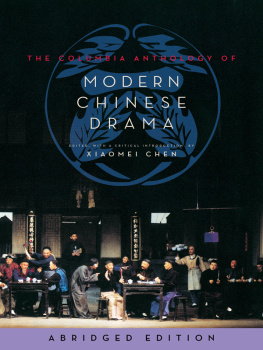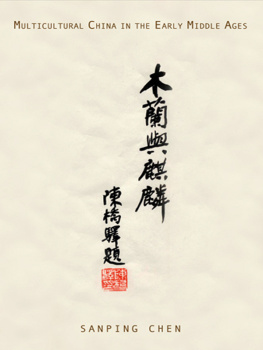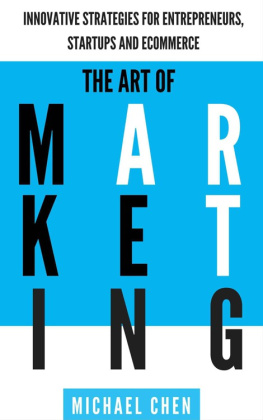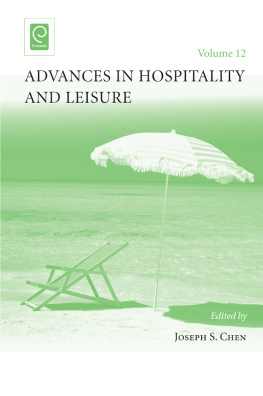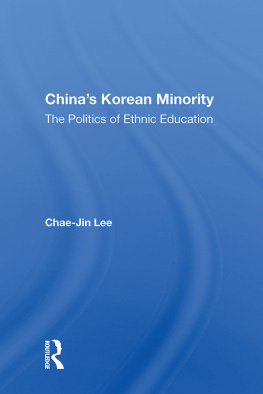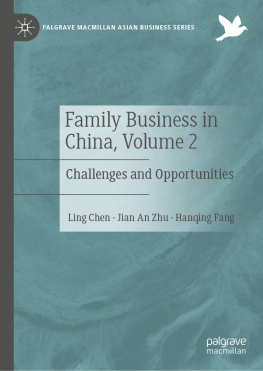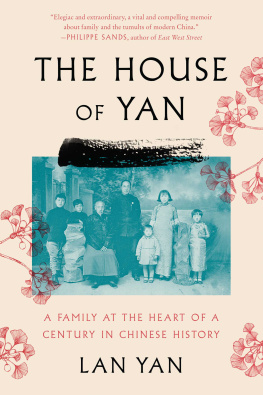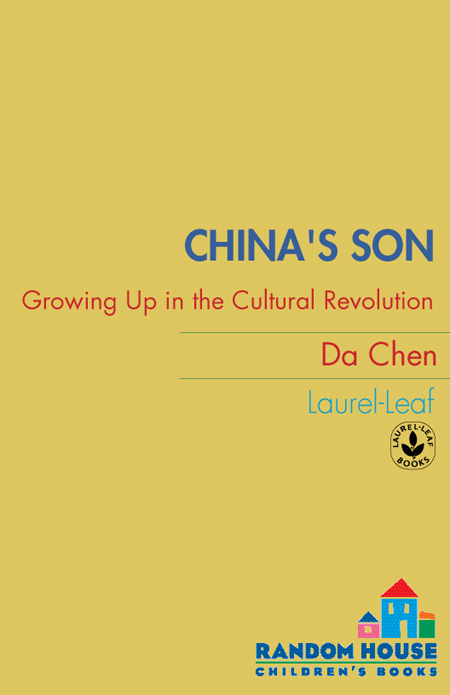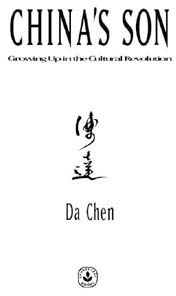I thank the following people for being there for me as I was in the process of bringing this memoir to life:
My beautiful wife, Sunni, who told me to write this book, taught me how to write it, and worked tirelessly as a brilliant first editor for it, our third child. This is our book!
Victoria, our daughter, for letting me grow with you. Michael, our son, for your great-grandpa's smiling eyes.
My literary agent, Elaine Koster. You are a superagent.
Ann Godoff, editor-in-chief, publisher, and president of Random House: never a day goes by without my thanking God for you.
Marissa Walsh and Fiona Simpson for your editorial and artistic vision.
And lastly, Beverly Horowitz of Random House Children's Books. Thank you for loving this book and making it into a gift to all the children of the world.
FOREWORD
Volumes have been written about China's Cultural Revolution, which lasted from 1966 to 1976, the time of my childhood. Each account is a horrifying testimony to a time gone bad at the hand of a demonic leader. During Mao Tse-tung's crazy drive to purge all his political enemies, millions died bloodily and many more were wrongly imprisoned. Factories were closed as workers rushed into the streets to shout Long live Chairman Mao, and schools were shut as Mao stirred youngsters to beat up their teachers, burn down the temples and destroy the ancient arts, and even turn against their own parents in the devilish hunt for more victims.
Books were trashed and classrooms ruined. Factories stood eerily quiet, weeds growing out of cracks in the walls. School campuses became brutal battlefields. Young students, armed with rifles, became roamers jumping on trains, traveling all over the country, toppling buses that would not take them, storming food stores that would not serve them. Fear and hopelessness gripped us all.
The Chinese say curses always come in pairs. During that time, China was also plagued by a desperate famine, and people were dying. Hungry people ate anythingweeds, grass, tree bark, shoe soles, snakes, rats, dogs, cats, other people.
Children crawled naked in the dirt, grabbing anything they could lay their hands onrotten worms, dead insects, bad fruit, and decayed vegetables.
But the fire of revolution burned on relentlessly. And in the dark shadows of ghostly ashes lived a boy who survived to write this book, a book about love in the face of hate, a book of hope for the hopeless.
Da Chen
ONE

I was born in southern China in 1962, in the tiny town of Yellow Stone. They called it the Year of Great Starvation. Chairman Mao had had a parting of the ways with the Soviets, and now they wanted all their loans repaid or there would be blood, a lot of it.
Mao panicked. He ordered his citizens to cut down on meals and be hungry heroes so he could repay the loans. The superstitious citizens of Yellow Stone still saw the starving ghosts of those who had died during that year chasing around and sobbing for food on the eve of the spring TombSweeping Festival.
That year also saw a forbidding drought that made fields throughout China crack like wax. For the first time, the folks of Yellow Stone saw the bottom of the Dong Jing River. Rice plants turned yellow and withered young.
Dad wanted to give me the name Han, which means drought. But that would have been like naming a boy in Hiroshima Atom Bomb. And since the Chinese believe that their names dictate their fate, I would have probably ended up digging ditches, searching for water in some wasteland. So Dad named me Da, which means prosperity.
The unfortunate year of my birth left a permanent flaw in my character: I was always hungry. I yearned for food. I could talk, think, and dream about it forever. As an infant, I ate with a large, adult spoon. I would open wide while they shoveled in the porridge. My grandmother said she had never seen an easier baby to feed.
Ours was a big family, and I was at the bottom. There were a great many people above me, with, at the top, my bald, long-bearded grandpa and my square-faced, largeboned grandma. Dad looked mostly like Grandma, but he had Grandpa's smiling eyes. Mom seemed very tiny next to my broad-chested dad. Sister Si was the eldest of my siblings, a big girl who took after Dad in personality and physique. Jin, my brother, had Mom's elegant features; we still haven't figured out just who my middle sister, Ke, looks like. Huang, who is a year older than me, grew up to be a tall, thin girl, a beauty with enormous eyes.
We lived in an old house that faced the only street in Yellow Stone. Our backyard led to the clear Dong Jing River, zigzagging like a dragon on land. The lush, odd-shaped Ching Mountain stood beyond the endless rice paddies like an ancient giant with a pointed hat, round shoulders, and head bent in gentle slumber.
We rarely left our house to play because Mom said there were many bad people waiting to hurt us. When I did go out to buy food in the commune's grocery store a few blocks away, I always walked in the middle, safely flanked by my three sisters as we hurried in and out. Neighborhood boys sometimes threw stones at us, made ugly faces, and called us names. I always wondered why they did that. It was obviously not for fun. My sisters often cried as we ran and dodged and slammed our door shut behind us.
I once tried to sneak through our side door and join the kids in the street, but Si caught me by the arm and snatched me back, screaming and kicking. She gave me quite a spanking for breaking the do-not-go-out order. When I asked Mom why we had to hide in our dark house all the time, she said that we were landlords, and that the people outside were poor peasants who had taken our house, lands, and stores.
They were making us suffer because the leaders were all bad. There was no fairness, no justice for us. We had to be quiet, stay out of trouble, and wait for better days to come.
When? I would ask. Someday, when you grow up, she'd answer. That will be a long time from now, I'd say. Mom would nod, her eyes gently studying my face as if looking for an answer herself. Then she'd take me in her arms and hum her favorite tunea simple melody urging a boy to eat more and grow up faster so that he could help plow the land with his dad and harvest the grain.
Restricted to the house, I would silently wander into Grandpa's smoky room and practice calligraphy with him. Some days, when my sisters were in school and Mom was busy and not watching me, I would wander out and wrestle with the neighborhood boys. This was a lot of fun, and I would come back all dusty and tell Mom I had fallen, and she would make me change my clothes.
One day when I was about six I stood on the pavement watching a parade of Red Guards carrying their rifles and red flags and shouting slogans, when a kid from next door, for no obvious reason, smacked me right on the face and kicked me when I fell. I picked myself up and charged like a bull into my smiling attacker. When he went down, I straddled him and hit him hard on the face and neck. Within half an hour, the Communist party secretary, a thin little man, stormed into our house with the kid's mother. He started shouting at my mom, demanding to see my father, who was away at labor camp. I hid behind a big chair.



